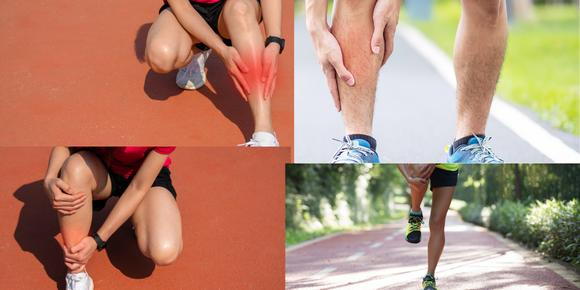The Stress Your Feet Put on Your Shins: How to Avoid Shin Splints-by Dr. Joseph E. Mechanik
posted: Apr. 01, 2023.

Shin Splints: What You Need to Know About This Common Condition If you're an athlete, you're probably familiar with the term "shin splints". This common foot condition is characterized by pain and tenderness in the front of the lower leg, typically around the shin. In this blog post, we'll discuss what shin splints are, what causes them, and how they relate to the feet. So, what exactly are shin splints? Shin splints are a type of overuse injury that occurs when the muscles and tendons in the lower leg become inflamed and irritated due to repetitive motion. This can occur when running, jumping, or performing any other type of physical activity that involves repetitive movement of the lower legs. Now that we know what shin splints are, let's talk about the etiology. Shin splints are typically caused by overworking the muscles and tendons of the lower leg, as well as by improper stretching, inadequate footwear, and inadequate warm-up. Finally, let's talk about how the feet are related to shin splints. As you might expect, the feet play a major role in this type of overuse injury. Poorly fitting footwear can lead to increased stress on the shin bones, muscles, and tendons, which can result in shin splints. Wearing the wrong type of shoes for your foot type can also cause the muscles in the lower leg to become overworked, resulting in shin splints. Additionally, having flat feet or high arches can also cause increased stress on the lower leg muscles and tendons, leading to shin splints. In summary, shin splints are a common overuse injury that occurs when the muscles and tendons of the lower leg become inflamed and irritated due to repetitive motion. It is typically caused by overworking the muscles and tendons of the lower leg, as well as by improper stretching, inadequate footwear, and inadequate warm-up.
One of the most important pieces of advice I can pass on, is that you need to strengthen you calf and lower leg muscles. Calf raises are key to doing this, as this exercise works all the lower leg muscles, which include your calf muscles, front and outside leg muscles. to perform calf raises, begin by standing up straight with your feet shoulder width apart. Lift your toes off the ground, while keeping your heels on the ground. This is the starting position. Now, slowly raise your heels up as high as you can, hold this position for a few seconds, and then slowly lower your heels back to the starting position. Start with just using your body weight to get your bones, tendons, muscles and ligaments use to the exercise. Do this for about two weeks, then start adding weight when doing the exercises using dumb bells, free weight or machines. I recommend 3-4 sets with 12-15 reps (repetitions) once or twice a week. Strengthening of your calf and lower leg muscles will take at least three months, so stay dedicated to the cause.
Finally, the understanding that your feet play a major role in this type of overuse injury, as poorly fitting footwear or having flat feet or high arches can lead to increased biomechanical stress on the lower leg muscles and tendons, resulting in shin splints. If you're experiencing shin splints, it's important to seek treatment from a podiatrist. A podiatrist can diagnose the condition and provide treatment options to reduce your symptoms and prevent future recurrences. One of the most effective and successful treatments I use for active people with repetitive shin splints, is prescription orthotics. Prescription orthotics keep your feet aligned and balanced to help them work better and transfer ground reactive forces up your leg and into your body more efficiently.
